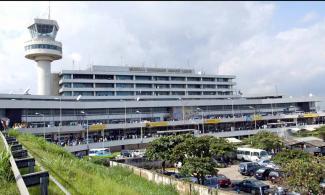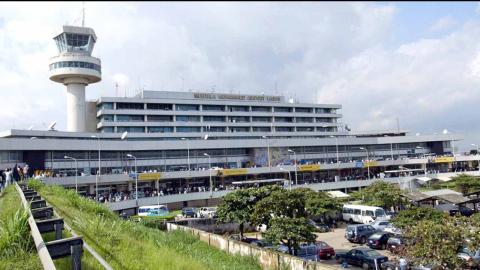
It was an intense session today at the annex office of the Nigerian Civil Aviation Authority (NCAA) at the Murtala Muhammed Airport (MMA), Lagos between the Airline Operators of Nigeria (AON) and the federal government, following the resolve of the latter to commence full implementation of the Yamoussoukro Declaration (YD) by this weekend.
It was an intense session today at the annex office of the Nigerian Civil Aviation Authority (NCAA) at the Murtala Muhammed Airport (MMA), Lagos between the Airline Operators of Nigeria (AON) and the federal government, following the resolve of the latter to commence full implementation of the Yamoussoukro Declaration (YD) by this weekend.
The local airlines insisted that the policy was inimical to the Nigerian airline operators and therefore sternly kicked against its full implementation, stressing that other African countries were more interested in airlifting the country’s passengers and not benefit the country at large.
There are 23 countries in Africa in 2015 that signed the Single African Air Transport Market (SAATM), which was born out of YD in 1988. The African Unions had set December 2017 for the implementation of the policy.
Speaking on behalf of AON, its president, CAPT. Nogie Meggison said that Nigeria should not implement the treaty and wondered why the government was in a hurry to commence implementation when the United States, for instance, was yet to sign any open sky policy with any country despite its resources and expansiveness.
Meggison, who queried if the same operating environment in other African countries is what was obtainable in Nigeria, had mentioned the issue of Value Added Tax, foreign exchange scarcity, and high aviation fuel as some of the issues militating against the Nigerian airline operators.
He decried further that while foreign airlines pay $200 on landing in Nigeria, the foreign carriers operating into Dakar, Senegal, for instance, pay $4000 for the same service and queried the balance in the operating environment.
He accused the Nigerian government of inconsistency in policy formulation and implementation and maintained that this had led to the death of 50 Nigerian carriers in the past 30 years.
He, however, said that YD or open sky agreement is a good one, but stakeholders especially the airline operators must be carried along.
He said: “For the fact that the train is going and no one can stop it, does it mean we should all go and commit suicide? We are not against YD or open sky, but what are we doing with the future of our younger ones? What do we stand to gain and how can the Nigerian airlines benefit from it?"
“We must think as Nigeria and put Nigeria first. Do we have visas to go around Africa before we open the sky? We require 34 visas to go to African countries alone. Are we opening the sky on a level playing field? Are we really ready for an open sky? The other countries that want to implement this policy have access to foreign exchange and loan, do we have such opportunities in Nigeria?
But, the Federal Government insisted that there was no going back with the implementation of the policy.
Sen. Hadi Sirika, the Minister of State for Aviation in his welcome address, emphasized that there was no going back with the full implementation of the policy.
Sirika, represented by Capt. Fola Akinkuotu, the Managing Director of the Nigerian Airspace Management Agency (NAMA) declared that Nigeria as one of the 23 states signatory to the treaty could not be left behind in its implementation.
In readiness for the full implementation, he explained that the federal government would concession the four designated airports in the first phase while some of the terminals are being expanded for repositioning.
The minister commended the leadership of the African Civil Aviation Commission (AFCAC), International Air Transport Association (IATA), and the African Airlines Association (AFRAA) for ensuring the full implementation of the policy, stressing that Nigerian airlines and other business organizations would benefit on the long run.
Also, Capt. Muhtar Usman recalled that the YD came into being in 1988, but several African governments were reluctant to implement it, but opened their skies to foreign carriers.
